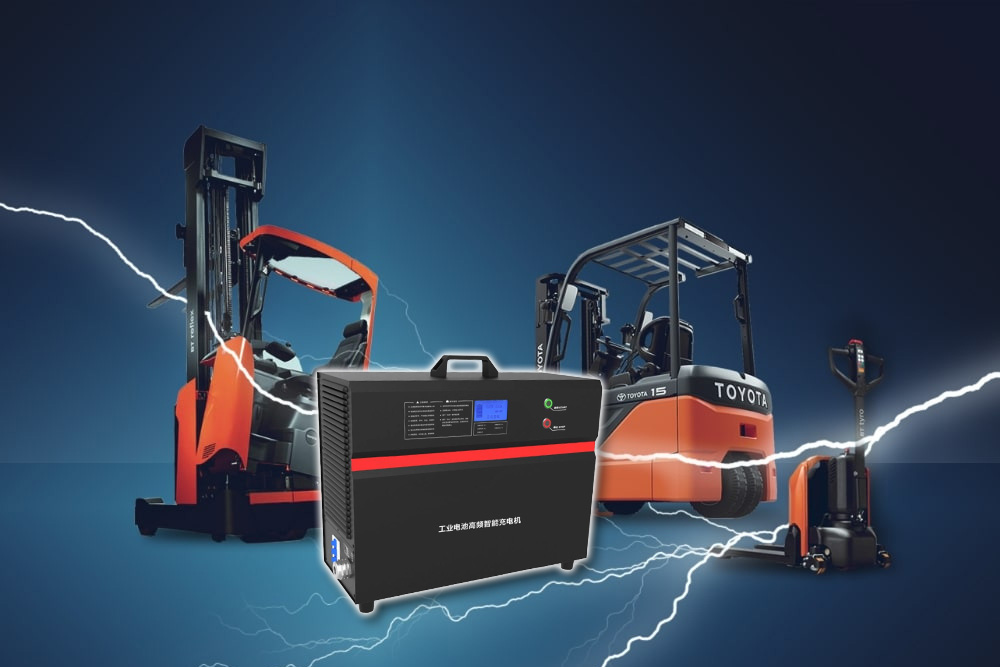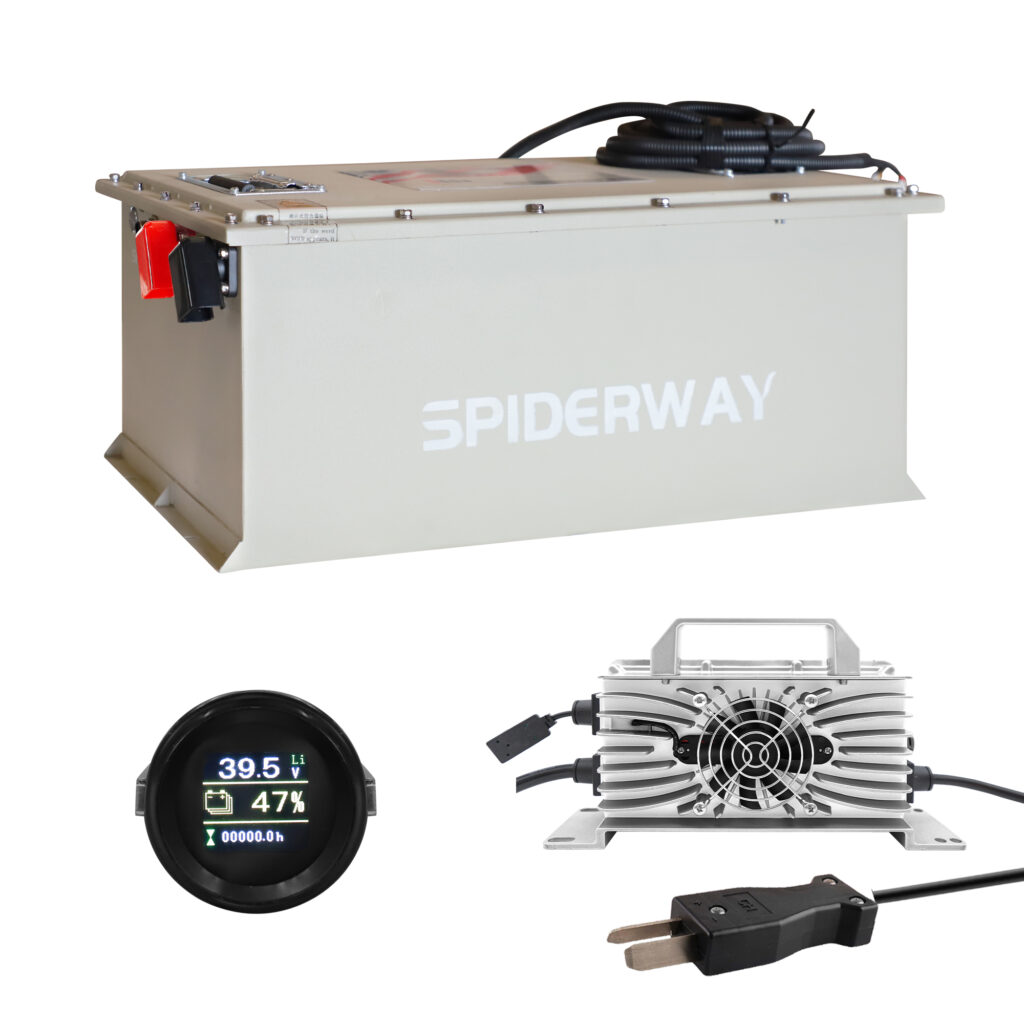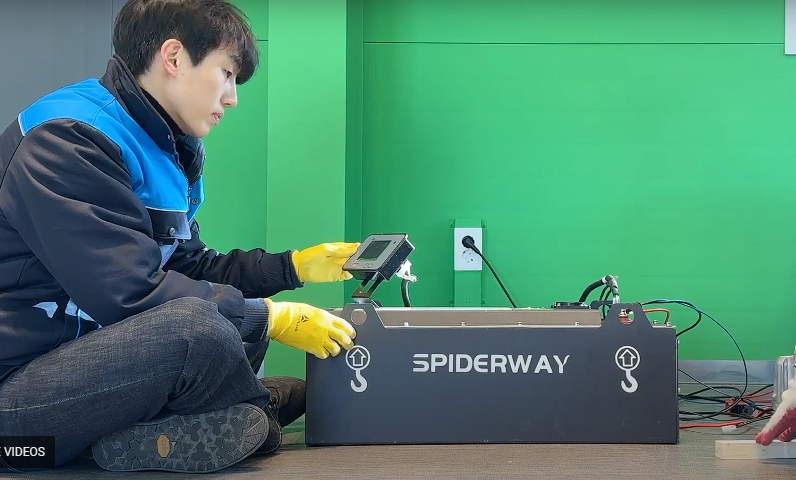
In the rapidly evolving industrial landscape, industrial vehicle chargers have become critical for efficient operations, particularly in material handling equipment like forklifts and automated guided vehicles (AGVs). This article explores the global distribution of industrial vehicle charger OEM manufacturing, highlights China’s competitive edge, and distinguishes between industrial vehicle chargers and EV charger. Finally, we will showcase the advantages of SPIDERWAY’s forklift lithium battery chargers.

Global Distribution of Industrial Vehicle Charger Manufacturers
The OEM manufacturing of industrial vehicle chargers is a global enterprise, with key production hubs concentrated in:
- China: The largest manufacturing base, offering advanced technology, cost-effective production, and a mature supply chain.
- Europe: Known for high-quality, eco-friendly solutions with a focus on energy efficiency standards.
- North America: Specialized in premium, customized chargers catering to high-end markets.
- Southeast Asia: Emerging as a competitive region due to low labor costs and expanding manufacturing capabilities.

Among these, China stands out as a global leader, with companies leveraging state-of-the-art facilities and a deep integration of battery technology to meet the growing demand for forklift chargers and industrial applications.
China’s Competitive Edge in Industrial Vehicle Chargers
China dominates the global market for industrial vehicle charger OEM manufacturing, supported by:
- Economies of Scale: Large-scale production facilities significantly reduce costs.
- Advanced Technology: Expertise in lithium battery integration and smart charging solutions.
- Comprehensive Supply Chain: Access to essential raw materials and components locally. These advantages position Chinese manufacturers as preferred partners for global businesses seeking reliable, cost-effective, and scalable solutions.

Industrial Vehicle Chargers vs. EV Charger
While both types of chargers serve battery-powered vehicles, their designs and applications differ significantly:
- Industrial Vehicle Chargers:
- Designed for equipment like forklifts, AGVs, and warehouse vehicles.
- Typically support heavy-duty, long-duration charging cycles.
- Focus on robustness and compatibility with industrial lithium-ion or lead-acid batteries.
- EV Chargers:
- Used for passenger cars and public electric vehicles.
- Emphasize speed and convenience with fast-charging capabilities.
- Require compliance with public charging infrastructure standards (e.g., CCS, CHAdeMO)
Understanding these differences is crucial for businesses selecting the right charging solutions for their operations.
SPIDERWAY: Advanced Forklift Lithium Battery Chargers
When it comes to premium-quality forklift chargers, SPIDERWAY leads the way. Our chargers are engineered to:
- Provide high efficiency and durability for demanding industrial environments.
- Support smart charging protocols to extend battery life.
- Offer flexible OEM solutions tailored to specific customer needs.
By choosing SPIDERWAY’s industrial vehicle lithium battery chargers, businesses can optimize their energy consumption, reduce downtime, and ensure seamless operations.
Conclusion
The industrial vehicle charger market is a cornerstone of modern material handling and logistics. With China's stronghold in OEM manufacturing, businesses worldwide can access cost-efficient, high-quality chargers tailored to their needs. As the distinction between industrial vehicle chargers and EV charger becomes clearer, companies can make informed decisions about their charging solutions.
For cutting-edge forklift chargers and industrial vehicle charging solutions, trust SPIDERWAY to deliver exceptional performance and reliability.
https://www.spider-way.com/industrial-vehicle-charger-oem-manufacturing-global-distribution-and-chinas-advantage/?_unique_id=67e4f77a4ce7b
Comments
Post a Comment